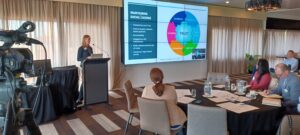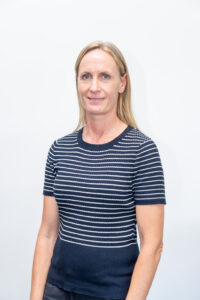Call to action for the future of greyhound racing
Bans, reviews and demands for closure are challenging the sustainability of greyhound racing and everyone involved in the sport shares the responsibility for building up trust.
Veterinarian Dr Michelle Ledger delivered a rallying call at the first Racing and Wagering Western Australia greyhound welfare forum this week, saying there was more to do in educating, supporting confidence and finding common ground to secure the future of greyhound racing.
“The sustainability of racing is based on the purest joy of the bond between humans and dogs,” Dr Ledger said.
“If we can show the deep attachment between the people in greyhound racing and the dogs in their care, then we can connect with other pet owners who understand that bond.
“Social licence is essential and everyone shares a responsibility to manage it and take proactive steps to improve it for the long-term future.”
Dr Ledger, who has a master’s degree in international animal welfare, ethics and law, is the Greyhound Racing New Zealand Welfare Manager and was previously the inaugural Chief Veterinary Officer at the New South Wales Greyhound Welfare and Integrity Commission.
In two presentations at the welfare forum, she talked about transparency, accountability and community engagement in supporting the social licence for greyhound racing as well as the science of injury prevention.

Taking a quote from Theodore Roosevelt: “People don’t care how much you know until they know how much you care,” she said highlighting the human-animal bond was the starting point for demonstrating good welfare outcomes in racing.
Comprehensive systems are in place to protect greyhounds but more must be done because views shift and evolve quickly in our changing society, so it’s vital to address public concern and criticism in a clear and credible manner.
“Don’t ignore anti-racing public comments but respond by talking about our evidence-based welfare practices and policies and showcasing the importance of racing to communities,” Dr Ledger said.
“The human-animal bond can both unite us with the wider community and divide us.
“Social licence depends on establishing trust, credibility and legitimacy.”

Dr Michelle Ledger
Dr Ledger said preventing injuries in racing depended on research to identify risk factors and using reliable data to manage and mitigate them.
“Injuries are part of all competitive sports, both those which involve animals and all the athletic pursuits humans enjoy,” she said.
“Our duty of care for greyhounds demands that we understand the risk factors for injury, prevent them where possible and respond appropriately when they occur.
“Our motto should be: What you can predict, you can prevent.
“There is no single cause of injury and no single strategy will prevent them. That makes our jobs harder.
“Added to this, serious injuries are uncommon, and the small datasets make risks difficult to measure.
“A risk does not mean an injury will occur but it tells us something about what we might be able to do to decrease them.
“Managing risk in our sport must be a priority and we need effective strategies to minimise harm to greyhounds while racing.”
Dr Ledger said the welfare forum brought together a host of experts and stakeholders to consider issues and potential solutions.
“It’s an opportunity to consult, hear what research is telling us and brainstorm to put some decent strategies in place,” she said.
“The input of participants is absolutely essential to this process.
“If the welfare of animals is good, they will perform at their best.”
Susan de Ruyter

